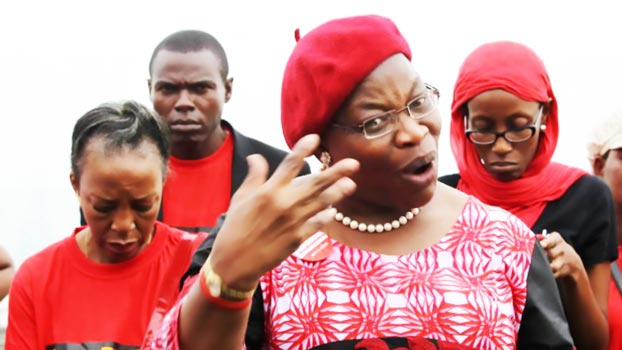
Former Minister of Education and current leader of the Bring Back Our Girls (BBOG) group, Mrs. Oby Ezekwesili has accused President Muhammadu Buhari of “murdering” the Nigerian currency.
Speaking while fielding questions on a Channel Television programme on Monday, Ezekwesili also accused the president of delaying decision making, particularly in matters regarding the nation’s economy.
Mrs. Ezekwesili, who is also the leader of the ‘Red Card Movement’ made the allegations while accessing the economic achievements of the Buhari-led administration over the last three years, in commemoration of the nation’s Democracy Day on May 29.
“Timing is everything in economic management. A decision making that is timely determines what all the other participants in the economy will do. If you lost time, you cannot in anyway, say it didn’t matter
”If the bureaucracy is all you need in order to run the economy, then why have political change through election? You don’t need that,” Mrs. Ezekwesili said.
She added: “The exchange policy regime that we have become accustomed to is transparent at all ends because it allows the market to do the adjustments. The president decided to do an exchange policy that took us to the era of import license, a market policy based on command and control.
“By doing so, the president, who said he didn’t want to murder the Naira, ended up murdering the Naira by becoming almost the CBN governor.
“If you had allowed the market to work, the supply side would have responded. What this government did is to manage the demand side issues with many administrative rules that therefore gave opportunity for the massive corruption that happened in this economy. The exchange policy entrenched corruption and that is not good for productivity.”
While stressing that the Buhari-led government took Nigerians to the dark ages of foreign exchange policy regime, Mrs. Ezekwesili further blamed the president for not averting recession when it was inevitable.
“At the time that they could have averted, recession was not inevitable. But if you did the right economic policy at that time, you would have averted the recession. Many other oil producing and exporting countries managed to avert recession.
“We might be out of it now but it had a huge effect on populace. When you have the kind of shock that the combination of oil price collapse and poor economic response to it occasioned, you would have dropped many more of your citizens into poverty. The last data of poverty rate from NBS is about 60 per cent.
“What the problem is, is that usually when you have such kind of collapse, you adjust, you adjust as an economic policy approach, in order not to get you to the deep end that we eventually found ourselves.”

Ajayi Agboola Emerges PDP Flagbearer For Ondo November Gubernatorial Election
119 Inmates Escape As Storm Damages Suleja Custodial Centre
Tinubu Launches Consumer Credit Scheme To Empower Working Nigerians
Federal Government Takes Action: Revokes 924 Dormant Mineral Licences